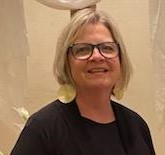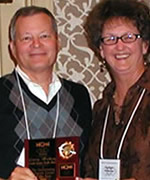The Outstanding Network Leader of the Year Award recognizes a network leader/director for leadership in managing a successful health network organization.
2023 Recipient: DEBRA RANALLO
Medi-Sota (MN)
Deb Ranallo has been the Executive Director of Medi-Sota since 1998. Medi-Sota, Inc. is a non-profit healthcare consortium of 34 rural health care providers in Minnesota. An alliance of rural healthcare organizations working together to provide customized value and services that will meet the individual needs of its members. Member benefit areas are:
~Recruitment~Education
~Peer Networking
~Cost Savings
In 1983 Medi-Sota entered into a joint venture with Minnesota West Community and Technical College to provide custom tailored education programs for staff. This working relationship existed until 2020 when Medi-Sota began managing their own education program. The program continues to grow and bring valuable training to rural healthcare organizations.
In 1995, Medi-Sota and the Rural Health Alliance developed a physician recruitment program for participating members. The success of this program led to these same two organizations collaborating to address the workforce shortage. Deb spearheaded the efforts to expand the program to include allied staff recruitment and retention. Part of this effort included successfully writing a grant to obtain funding for start-up costs from The Office of Rural Health and Primary Care awarded through the MN Rural Flex Program in 2001. In 2015 the Rural Health Alliance opted out of the program and Medi-Sota became the sole owner of the recruitment program, contracting a Recruiter to carry out recruitment activities. In 2019 Medi-Sota also took on the role of lead agency for the 3RNet organization, assisting healthcare providers in their search for candidates seeking positions in rural Minnesota. Deb continues to oversee the recruitment program, which remains an important resource for Medi-Sota members and 3RNet partners.
During her tenure at Medi-Sota, Deb has successfully written and/or managed 12 grants. She negotiates all contracts for services including, but not limited to; mobile MRI, mobile PET/CT, Hazardous Waste Removal, mobile Cataracts, telecommunications. She is a great negotiator and keeps the vendors accountable making sure excellent service is being provided. When a member facility is having issues with billing, service, or any other issue she intervenes on their behalf so the facility does not have to take time doing the back-and-forth calls/emails to resolve the issues. Through her negotiation skills, she has saved members $2.5 million in 2021.
Medi-Sota staff state “Deb is a great leader and mentor who pushes staff to improve themselves and be their best”. She treats all members equally, no matter their size and works diligently on their behalf to help them stay viable. Deb is very mission driven since she is from rural MN. She lived and worked in the twin cities but came back home to raise her 2 daughters with her husband. She now has 6 grandchildren that she absolutely loves and enjoys spending time with.
The Medi-Sota Network is a long-time member of NCHN.
2022 Recipient: PAT SCHOU
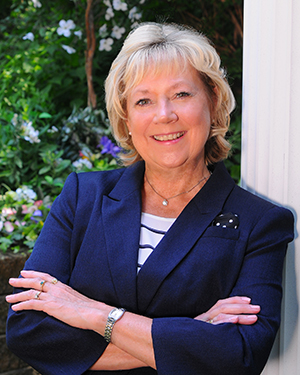 ILLINOIS CRITITCAL ACCESS HOSPITAL NETWORK (il)
ILLINOIS CRITITCAL ACCESS HOSPITAL NETWORK (il)
Pat Schou is a true visionary in the world of rural healthcare and as a result of her hard work, thousands of Americans living in small towns and communities have better access to the healthcare they need.
Pat founded the Illinois Critical Access Hospital Network (ICAHN), the first state-wide network, in 2003 and the organization had its first meetings at a Pizza Hut. Now, almost 20 years later, ICAHN has become the model of network development across the country and continues to excel as a resource for rural and critical access healthcare providers, including 57 in Illinois alone. She also manages several grant programs for the Illinois Department of Public Health and other organizations.
Over the past 20 years, Pat has served as President of the National Rural Health Association (NRHA), where she has held several positions since 2015. She was recently appointed to the National Advisory Committee on Rural Health and Human Services. In addition, she is the executive director of the Illinois Rural Community Care Organization, which is a statewide rural accountable care organization comprised of 27 critical access and rural hospitals, and initiated ICAHN’s Medicare Advantage program. Pat also leads Survey Solutions by ICAHN. A full service, CMS approved, Patient Experience survey company that focuses solely on serving rural and critical access hospitals and clinics.
The Illinois Critical Access Hospital Network has been a member of NCHN since 2007.
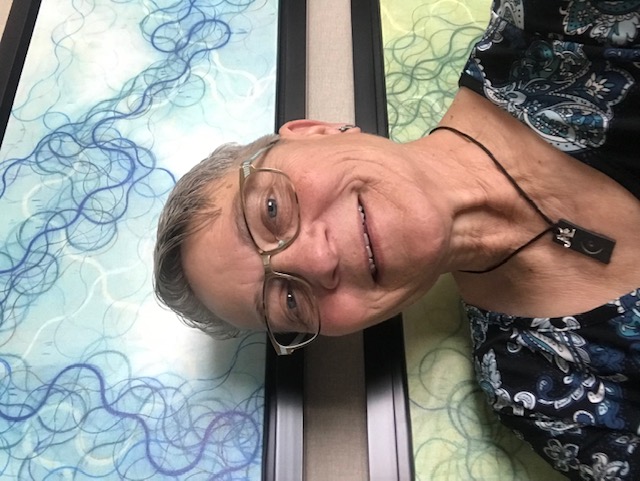 2021 Recipient: LESLIE FLICK
2021 Recipient: LESLIE FLICK
HEALTH FUTURE, LLC (OR)
Leslie Flick is the Executive Director of Health Futures, LLC, in Medford, Oregon. She has a long history of personal and professional success. Having been aligned as a member representative to Health Future’s Supply Chain and Operating Councils for over 20 years, Leslie joined the Health Future team as an employee in 2009. Born and raised in New Orleans, Leslie seemed destined to work in the supply chain area as both parents had lengthy careers in procurement and supply chain operations. She has been working in related areas for 30+ years. While spending part of her work experience in healthcare administration, Leslie’s true passion is supply chain, logistics and change management. According to Leslie, that’s what makes her eyes sparkle.
Leslie’s mantra is “Those who say it can’t be done shouldn’t interrupt those that are doing it”. She carries that forward in her work supporting Oregon and Nevada-based member facilities. According to Leslie, “It’s in our day-to-day efforts with our members that the value of what we can offer is most evident. That’s where I feel most fulfilled as we support the continued viability of healthcare in our very rurally oriented states.”
During the COVID crisis, Leslie’s leadership helped several facilities secure much needed personal protection equipment. Leslie was able to secure N95 masks along with reusable isolation gowns for medical professionals. Especially during March/April 2020, these items were increasingly difficult to obtain and some hospitals were paying top dollar. With Leslie’s leadership, Health Future was able to promote best practices through a variety of specialty councils, regional networking, and educational programs.
Leslie has been an active member of NCHN for several years. She currently serves on the board of directors, having served as President in 2017 and 2018. She has attended every conference since 2015 and every Leadership Experience since 2016
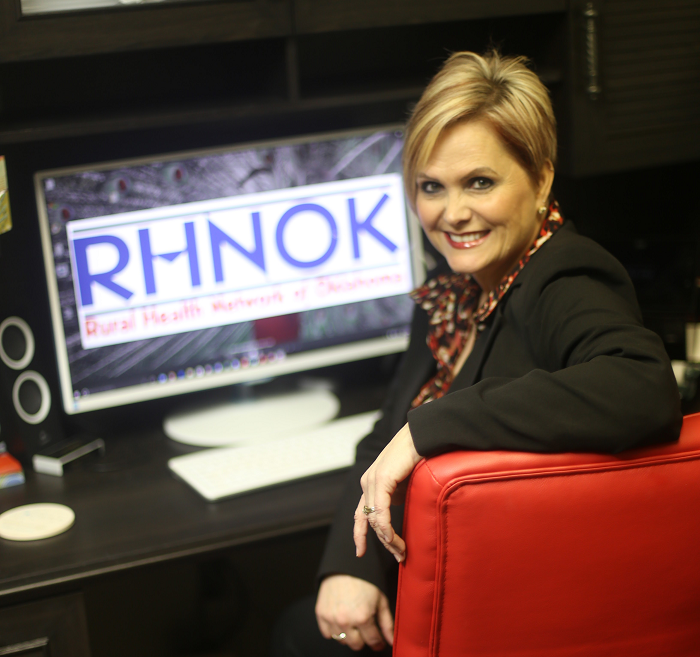 2019 Recipient: Stacie Pace
2019 Recipient: Stacie Pace
Rural Health Network of Oklahoma (OK)
Stacie Pace has led RHN since 2010, positively impacting her community, region, state and nation for nearly a decade. She has sustained RHN through five HRSA grants totaling more than 3.8 million dollars, as well as by creating and providing high quality, affordable IT services for network members. She is sought by other network leaders from across the nation to advise them on longevity, active member participation, and project management. Stacie is a passionate rural provider advocate. She has been nominated to and serves on rural health boards, including the board for the Oklahoma HIE, MyHealth. In 2012 Stacie established RHN as their own 501c3. In 2017, she partnered RHN with Oklahoma State University (OSU). This innovative partnership expanded OSU’s rural health reach into community initiatives and instantly transformed RHN reach from the southeast region to statewide. She also leads the OSU practice-based research network, Rural Oklahoma Network (ROK-Net), providing members of both networks with resources for clinical quality and administrative solutions Together these networks deliver both care coordination among local RHN members as well as, operational solutions. These initiatives improve rural Oklahomans access to health care and keep rural health systems financially viable.
Expanding RHN’s reach beyond its members, in 2016 Stacie recruited Remote Area Medical of Tennessee to Southeast Oklahoma to provide a free medical, vision, and dental clinic. She has hosted annual RAM events for three years. She was the first to partner the RAM organization with the U.S. Public Health Service and their corps of officers to staff events and provide treatment. In 2018 Stacie was awarded a Citation of Commendation from the Oklahoma State Legislature for her contribution to health care access for rural Oklahomans and Americans. She worked with RAM and rural state universities to utilize space and dormitories to support the 100 officers and 100 volunteers that serve. Over three years RAM has provided thousands of free health services to Oklahomans, Texans, and Louisianans. This year Southwestern Oklahoma University’s President Randy Beutler personally invited Stacie and RAM to his campus; and once again a Stacie-innovated rural health program is replicated in another region.
Stacie tirelessly advocates to state and national legislators ensuring a rural voice when state health policy is being set or changed. One of Oklahoma’s most targeted rural health initiative has been the County Health Improvement Organization (CHIO) program, an initiative to create county health extensions. One hundred percent of the counties assigned to Ms. Pace became and remain certified CHIOs, making the SE region the most concentrated CHIO region. This success gained state recognition and Stacie was approached in early 2019 to re-engage with the CHIO initiative to replicate her work across the state of Oklahoma. Stacie started her network adventure as the Executive Director of RHN, a network which began with a regional focus that to date has a footprint on local, regional, statewide, and national health programs.
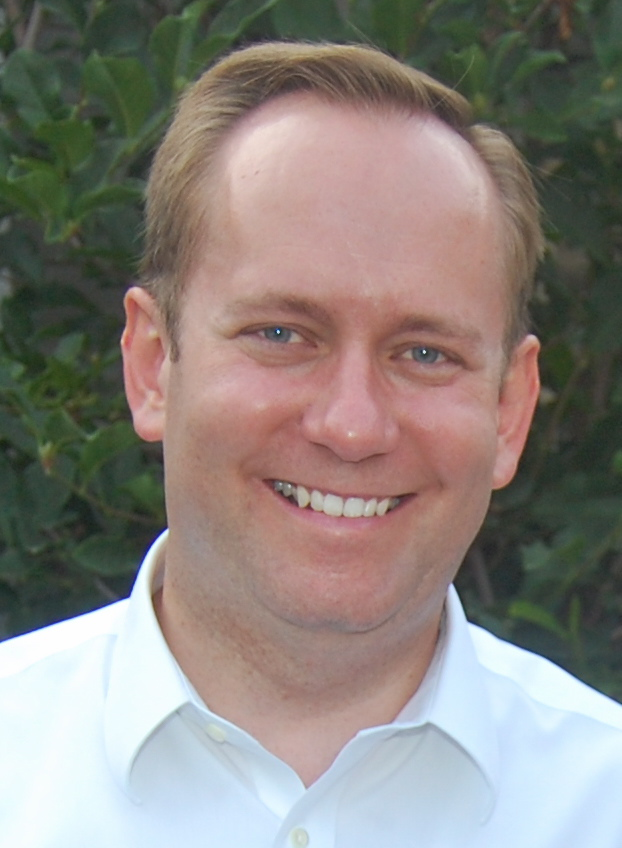 2018 Recipient: Steve Stoddard
2018 Recipient: Steve Stoddard
New Mexico Rural Hospital Network (NM)
Stephen Stoddard has served as the first Executive Director of the New Mexico Rural Hospital Network for three years. He thoroughly enjoys his work—especially the opportunity to support his member hospitals and help his young network to thrive. The network consists of 10 rural, nonprofit, independent hospitals from across the state and was established in 2011 when the CEOs began meeting together and formalizing the organization. Under Stephen’s leadership, the network has added two hospitals, created several business partnerships for group purchasing, established 13 active Peer Network Committees, transitioned to financial sustainability after completing a HRSA Network Development Grant, and organized several important educational events. He has also worked closely as a consultant with several of his network hospitals that have been participating in a Medicare ACO.
Stephen is currently serving as the Board Chapter President of the New Mexico Healthcare Executives and is a Fellow of the American College of Healthcare Executives. In his previous job, Stephen was the Executive Director of the Southwest Idaho Community Health Network for 11 years where he worked with a network of 12 hospitals that included several rural hospitals and some urban system hospitals. One of his favorite projects in Idaho was to establish a Telepharmacy service to provide additional pharmacy coverage for rural hospitals. He was a Board Chapter President of the Idaho Healthcare Executive Forum. Stephen has also worked as the Assistant Administrator / Corporate Compliance Officer of Smithville Regional Hospital in Texas, and the Administrative Fellow at Chesapeake General Hospital in Virginia. He earned his master’s degree in healthcare administration at the University of North Carolina at Chapel Hill and his bachelor’s degree at Brigham Young University, Provo.
Stephen has been an active member of NCHN for the past 13 years. He has served in several NCHN Leadership Positions including Board Member, Secretary, Vice President, President, and Immediate Past President.
Stephen enjoys water skiing, visiting historic sites and serving as a volunteer through church and Boy Scouts. For entertainment he and his family have enjoyed attending the Albuquerque International Balloon Fiesta each fall. His greatest joy comes from spending time with his wife Tonya and three children Madeline, Jacob, and Jessica.
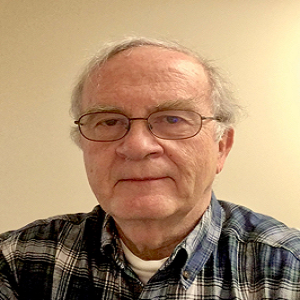 2017 Recipient: Tim Size
2017 Recipient: Tim Size
Rural Wisconsin Health Cooperative (WI)
RWHC (Rural Wisconsin Health Cooperative) has been providing affordable and effective services to healthcare organizations since 1979. The Cooperative's emphasis on developing a collaborative network among both freestanding and system affiliated rural hospitals distinguishes it from alternative approaches. RWHC offers a variety of programs and services to its members as well as to other clients across the nation. RWHC is owned and operated by forty, rural acute, general medical-surgical hospitals. The Cooperative's emphasis on developing a collaborative network among both freestanding and system affiliated rural hospitals distinguishes it from alternative approaches. In 1996, RWHC created a non-voting Affiliate Membership for specialty provider based systems. Incorporated in 1979 as the Rural Wisconsin Hospital Cooperative, RWHC has received national recognition as one of the country's earliest and most successful models for networking among rural hospitals. Today, the work continues as the renamed Rural Wisconsin Health Cooperative responds to the needs of its diverse members and their communities. RWHC serves as a catalyst for statewide collaboration and a progressive, creative force on behalf of all rural health constituencies. Owned by thirty-nine non-profit rural acute, general medical-surgical hospitals, RWHCs charge is twofold: advocacy for rural health at the State and Federal levels, and shared service development for member hospitals as well as external customers. The Core Values of trust, collaboration, creativity, excellence, pride, openness, individual development, productivity, and responsibility continue to define the work of RWHC and its members.Continued growth has led to RWHC establishing three additional stand-alone business entities. First, the RWHC Network was established to negotiate HMO and other insurer contracts. The Network assists members with payer contract development and management. The RWHC PHO was founded to work with hospitals and physicians on issues surrounding Medicare Advantage programs. And finally, in 2007 RWHC and Member hospitals founded the RWHC Information Technology Network, a 501(c) 3 organization delivering shared EHR and HIT services. Mission: We are a strong and innovative cooperative of diversified rural hospitals.Vision: Rural Wisconsin communities will be the healthiest in America. Tim Size has been the Executive Director of the RWHC since its founding after working at the University of Wisconsin Hospital & Clinics for five years and as the administrator of Hospital Metodista in La Paz, Bolivia. Tim has a B.S. in Biomedical Engineering from Duke University, an MBA from the University of Chicago and an Honorary Doctorate of Humanities, from the Medical College of Wisconsin. He has served twice, under Democratic and Republican Secretaries, on the U.S. Department of Health and Human Services’ National Advisory Committee on Rural Health and Human Services. He has served for nearly 30 years on the Wisconsin Health & Educational Facilities Authority, having been appointed by Republican and Democratic Governors. He is a past president of the National Rural Health Association, current co-chair of its Foundation and was a member of the Institute of Medicine Committee that wrote Quality Through Collaboration: The Future of Rural Health.
 2016 Recipient: Lisa Ladendorff
2016 Recipient: Lisa Ladendorff
Northeast Oregon Network (OR)
Northeast Oregaon Network (NEON) formed as an all volunteer organization in 2004 then as an independent 501c3 in 2009 with Lisa as the founding director. As a local public health director and clinical social worker, her motivation to find partners to form a network whose mission was focused on increasing access and qualtiy care by increasing the resources was prompted by 2 events. First, state revenue declines cut Oregon's first effort to achieve universal coverage. People who had coverage previously would call for mental health services and would be told there were no services available unless they were suicidal. The second event was when a friend, not a U.S. citizen became pregnant. Unable to obtain health coverege and to increase her income to save to pay for the birth she started to work on her farm. Not receiving any prenatial care she was not aware of challenges in her pregnancy until early in her 7th month when she went into labor in the field. She and her daugher spent the next 8 weeks in the hospital after being life flighted to an urban facility. I decided to band together with others so we could focus on being large enough to obtain outside resources, skilled enough to handle large project management functions, and specialized enough to support partner sites with evaluation and technical skills needed for them to work at a high level. In essence, we take risks that our partners can't in order to resource and implement innovative projects. With a million dollar a year budget, we employ eight fte, and contract for a further 3 from partner organizations. While we are not a direct service provision agency, other than providing outreach and enrollment into health coverage, we manage and implement projects with partners that include integrating trained behavioral health coaches into primary care settings and supporting community health workers in multiple community based entities. We also run the second state approved CHW training program in Oregon, including an ongoing community of practice and a supervisor education component, manage a Pathways Community Hub, and provide technical assistance, grant writing, and program evaluation to partner organizations. We also engage in both qualitative and quantitative community health assessment activities, and provide consulting services to other networks and organizations both state wide and nationally.
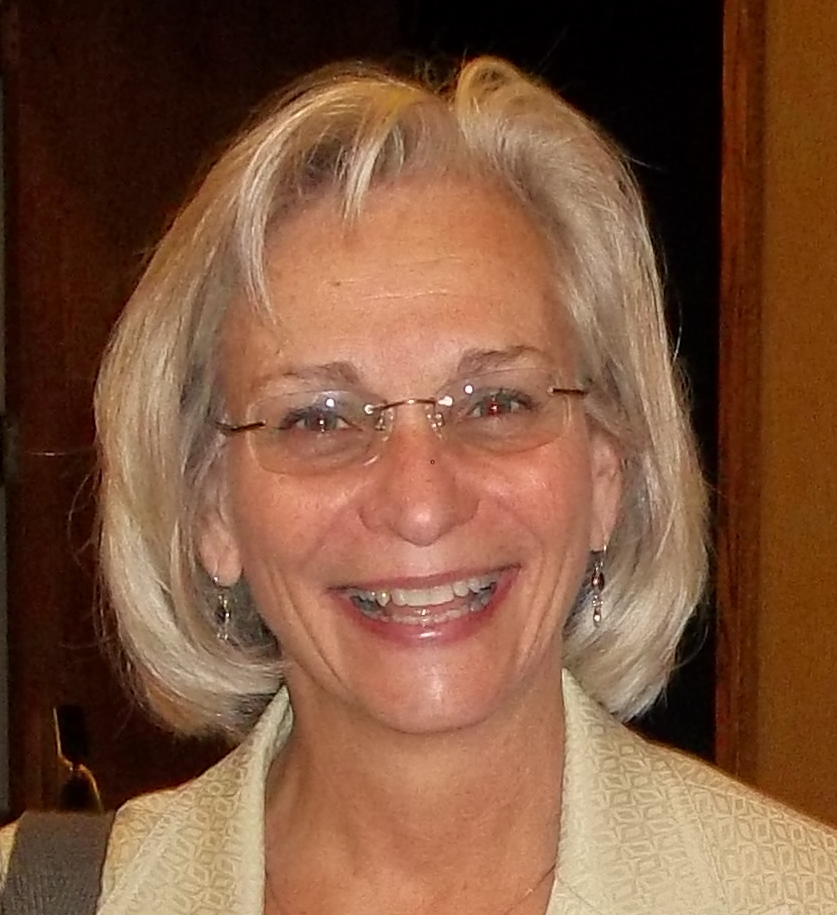 2014 Recipient: Cindy siler
2014 Recipient: Cindy siler
Tennessee Rural Partnership (TN)
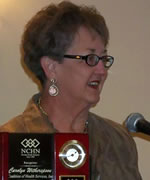 2013 Recipient: Carolyn Witherspoon
2013 Recipient: Carolyn Witherspoon
Coalition of Health Services (TX)
Carolyn has served on the NCHN Board of Directors for seven years, including a one year term as NCHN President from 2011 through 2012. “Carolyn’s service to NCHN and its members has been a tremendous asset,” said Rebecca J. Davis, NCHN’s Executive Director. “Her combination of direct experience in rural healthcare delivery and her ability to do so much, and cover such a large service area, with limited financial backing, make her an exemplary leader and a prime example of the efficiency that health networks nationwide seek to achieve. Her peers across the country recognized her leadership with this award.”
In March of 1998, Carolyn Witherspoon began employment with the Coalition of Health Services (COHS) as Quality Assurance Director. Just two years later, she was appointed as the Executive Director following a six month term as Interim Director. Prior to working with COHS, she worked as staff nurse, nursing supervisor and in director positions primarily in rural hospital settings. Carolyn Witherspoon has a passion for rural communities and a strong will to improve health care for residents of the Texas Panhandle. She promotes linking healthcare providers, facilities and suppliers of products to enhance care and is knowledgeable of community needs and the value of partnering and collaboration with all involved in the healthcare industry.
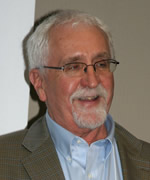 2012 Recipient: Jack King
2012 Recipient: Jack King
Northcentral Montana Healthcare Alliance (MT)
After a thirty year career as an entrepreneur in the restaurant business and many years as a hospital trustee in Great Falls, Montana, Jack King entered the healthcare field first as a grant writer and then as Executive Director of NMHA in 2003. NMHA is a Hospital Network comprised of two PPS hospitals, two HIS hospitals, and eleven Critical Access Hospitals (CAHs) and covers a thirteen county region of over 45,000 square miles. “While quiet and unassuming, Jack King has his finger on the pulse of rural health and is a wealth of knowledge on a breadth of topics,” said the person who submitted King’s nomination. “He has led his network in a progressive manner and has been successful at leading a group of competitive CAHs in projects for many years. The awarding of the first HRSA HIT Network Development Grant is another example of Jack’s progressive thinking in positioning his network members for the changes occurring in rural health care.”
Jack King has led his network in its successful implementation and maintenance of numerous programs, including a mobile DEXA screening van, a regional digital radiology and PACS network for its CAH members, telemedicine that provides specialty consultations to patients who otherwise have to drive long distances to receive specialty care. In addition to his work with NMHA, King also directs the REACH Montana Telehealth Network with Benefis Health System in Great Falls. “Jack King is a very busy network leader,” said Rebecca Davis, Executive Director of NCHN. “Still, he makes time to share his wealth of knowledge with his peers through his service on NCHN’s Board of Directors and numerous NCHN Committees. Jack is always willing to offer assistance to other members and among the first to volunteer to help on new projects. He is an asset to NCHN and to his peers across the country.” For more information about NMHA, visit the NMHA website at www.nmhamontana.org.
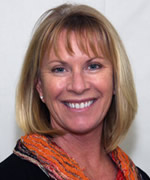 2011 Recipient: Carolyn Bruce
2011 Recipient: Carolyn Bruce
Western Healthcare Alliance (CO)
Western Healthcare Alliance, formed in 1989, is a not-for-profit rural health network comprised of 26 member hospitals and health-services providers in Colorado. Under Carolyn’s leadership over the last thirteen years WHA has grown to become a profitable, multi-million dollar network with four separate limited liability companies and a staff of over 75 employees.
With more than twenty years of experience in healthcare administration, Carolyn currently manages a portfolio of consulting, programs and services designed to assist rural providers and networks. These programs include Healthcare Management, LLC for the collection of medical bad debt, self-pay billing and financing, Revenue Cycle performance improvement, Horizon Corplex, LLC for office building property management, Employee Benefits and other insurance programs, a Preferred Provider Organization, Leadership Academy for supervisor education and a formal group purchasing organization partnership.
2010 Recipient: Larry Matheny
Coastal Carolina Health Alliance (NC)
Larry Matheny has served as President of the Coastal Carolinas Health Alliance (CCHA) since 2005. Since its inception in 1993, CCHA has served not-for-profit hospitals in North Carolina, placing a major emphasis on regional group purchasing contracts. During Matheny’s tenure, savings have gone from $2.3 million to $5.7 million, an average of over an eight to one (8:1) return on investment. CCHA has concentrated on grant writing and has been awarded several grants to develop a mobile simulation laboratory, a Health Information Exchange (HIE) and a regional sexual assault nurse examiner program (SANE). Efforts are underway to fund a community diabetes education program and a LEAN collaborative for southeastern North Carolina.
“Larry Matheny and CCHA have been an asset to NCHN members,” said Rebecca Davis, Executive Director of NCHN. “He is always willing to share best practices, benchmark data and assist other members in times of need.” In April 2010, Matheny was also elected by the NCHN membership to serve on the NCHN Board of Directors.
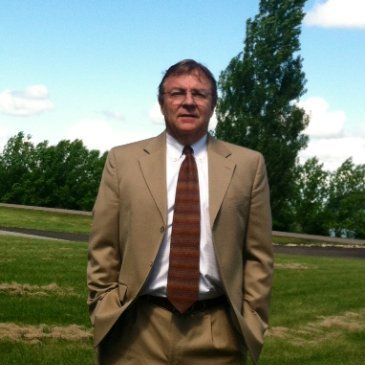 2009 Recipient: Tim Cox
2009 Recipient: Tim Cox
Northland Healthcare Alliance (ND)
Tim is President of the Northland Healthcare Alliance, a rural health alliance located in Bismarck, North Dakota. The Alliance includes 24 healthcare facilities (1 tertiary medical center, 14 Critical Access hospitals, & 9 long-term care facilities) working together to strengthen available resources and capacity to deliver value-based healthcare in today’s competitive market. Under Tim’s leadership, the Alliance has been able to secure over $10 million for members and network programs. The Alliance is focused on becoming a form of a RHIO (Regional Health Information Organization) with the objective of serving as a clearinghouse for patient medical information for hospitals in the region.
Over the past 17 years, Tim has been engaged in many healthcare networking activities in different regions of the country. Prior to his current position, Tim served as the Executive Director of the Association of Rural Centers for Health, a hospital network comprised of small rural hospitals located in the corners of Utah, Idaho and Wyoming. Tim is also a charter member and past president of NCHN, a board member of Communities Joined in Action (CJA), and has been recently elected to the board of the National PACE Association.

